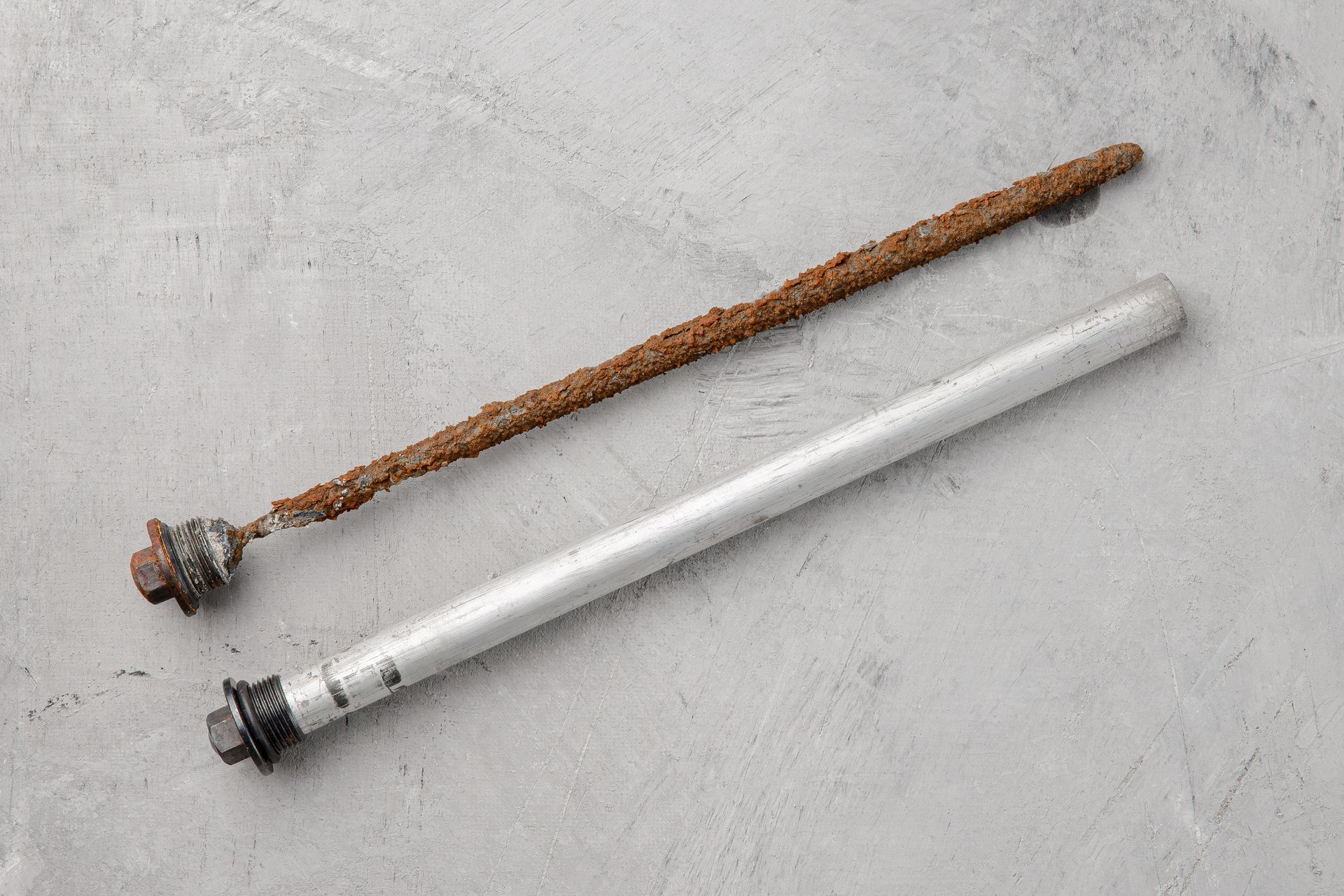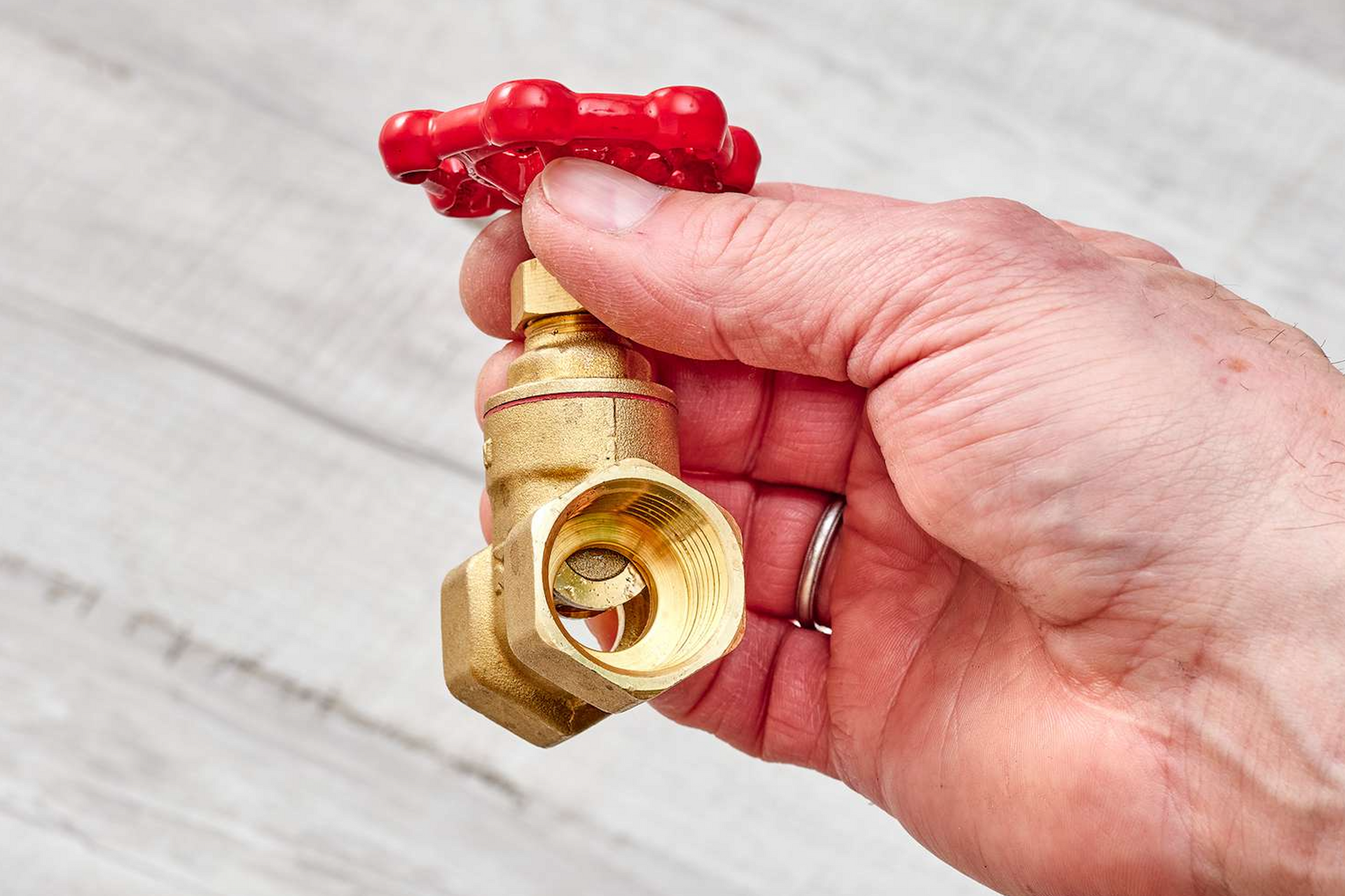January 6, 2026
When most homeowners think about water heater maintenance, they picture draining the tank or adjusting the temperature. But there’s one part inside every traditional tank-style water heater that quietly protects the entire system, yet rarely gets talked about. It’s called the anode rod, and understanding it can extend your water heater’s life by years. At Aarons Water Heaters, we see the good, the bad, and the completely dissolved when it comes to these rods. So here’s what every homeowner around Ann Arbor should know. What Is a Water Heater Anode Rod? Inside your water heater tank, there’s a metal rod, usually made of magnesium, aluminum, or zinc-aluminum alloy, that’s designed to corrode on purpose. Yes, you read that right. The anode rod’s job is to act as a “sacrificial” component so the steel tank doesn’t corrode instead. If the tank rusts, you end up with leaks, water damage, and a costly replacement. If the rod rusts first, your tank stays protected. How Does an Anode Rod Work? (Simple Explanation) Water naturally causes corrosion, especially when minerals or oxygen are present. Without protection, the inside of your water heater tank would rust quickly. The anode rod prevents this by using a scientific principle called electrolysis: The rod attracts corrosive elements in the water Those elements eat away at the rod instead of the tank The rod slowly deteriorates over time When it’s fully consumed, your tank becomes vulnerable Think of it like sunscreen… but for your water heater. Signs Your Anode Rod Needs to Be Replaced You don’t have to see the rod to notice something’s off. Some common signs include: Hot water that smells like rotten eggs Water discoloration Rumbling or popping noises from the tank Your water heater is 5+ years old and has never had maintenance You’ve noticed more sediment in the tank Reduced hot water quality or output Most anode rods last 3–5 years, but it depends greatly on your water quality. Here in Michigan, hard water can significantly shorten that lifespan. DIY Anode Rod Tips (For Confident Homeowners) You can check or replace an anode rod yourself, just be aware that the job often requires serious torque and can be tricky in tighter spaces. But if you’re handy, here are some safe starting tips: 1. Know Your Water Heater Type Most standard tank heaters (gas or electric) have one anode rod. Some high-capacity models have two. Tankless units generally do not have them. 2. Turn Off Power / Gas & Water Electric: switch off the breaker Gas: turn the gas knob to OFF Close the cold-water inlet Let the tank cool before working on it 3. Drain a Few Gallons You don’t need to drain the whole tank, just relieve pressure so it doesn’t spray when you loosen the rod. 4. Locate the Anode Rod It’s usually found: On top of the tank Under a plastic cap Sometimes integrated with the hot water outlet 5. Prepare for a Tough Bolt ( often tightened extremely hard from the factory) Expect to use: A breaker bar Possibly penetrating oil Steady downward pressure to avoid tipping the tank 6. Inspect & Replace If the rod is: Less than ½ inch thick Fully coated in calcium Split, rusty, or nearly gone …it’s time for a new one. 7. Consider Upgrading Homeowners with limited space above their heater can use a flex or segmented anode rod, which bends to fit in low-clearance basements. Why Regular Anode Rod Checks Save You Money Replacing a worn anode rod can add 3–7 extra years of life to your water heater. That’s a $20–$60 part that could save you a $1,500+ replacement. It’s one of the best “small maintenance, big payoff” steps you can take. Want a Pro to Handle It? Aaron's Water Heaters Can Help If you’re not comfortable wrestling with fittings, don’t own a breaker bar, or just want the peace of mind of a licensed master plumber, we’re here for you. We can provide: Anode rod inspection Anode rod replacement Full water heater replacement/upgrades Water softener and iron filtration service Aaron’s Water Heaters (734) 476-1075 info@aaronswaterheaters.com Serving Ann Arbor, Brighton, Whitmore Lake, Pinckney, Howell, Dexter, Chelsea, and all surrounding areas If you want to extend the life of your water heater and avoid expensive surprises, just reach out. We’ll make sure your system is running efficiently, safely, and protected for years to come.




